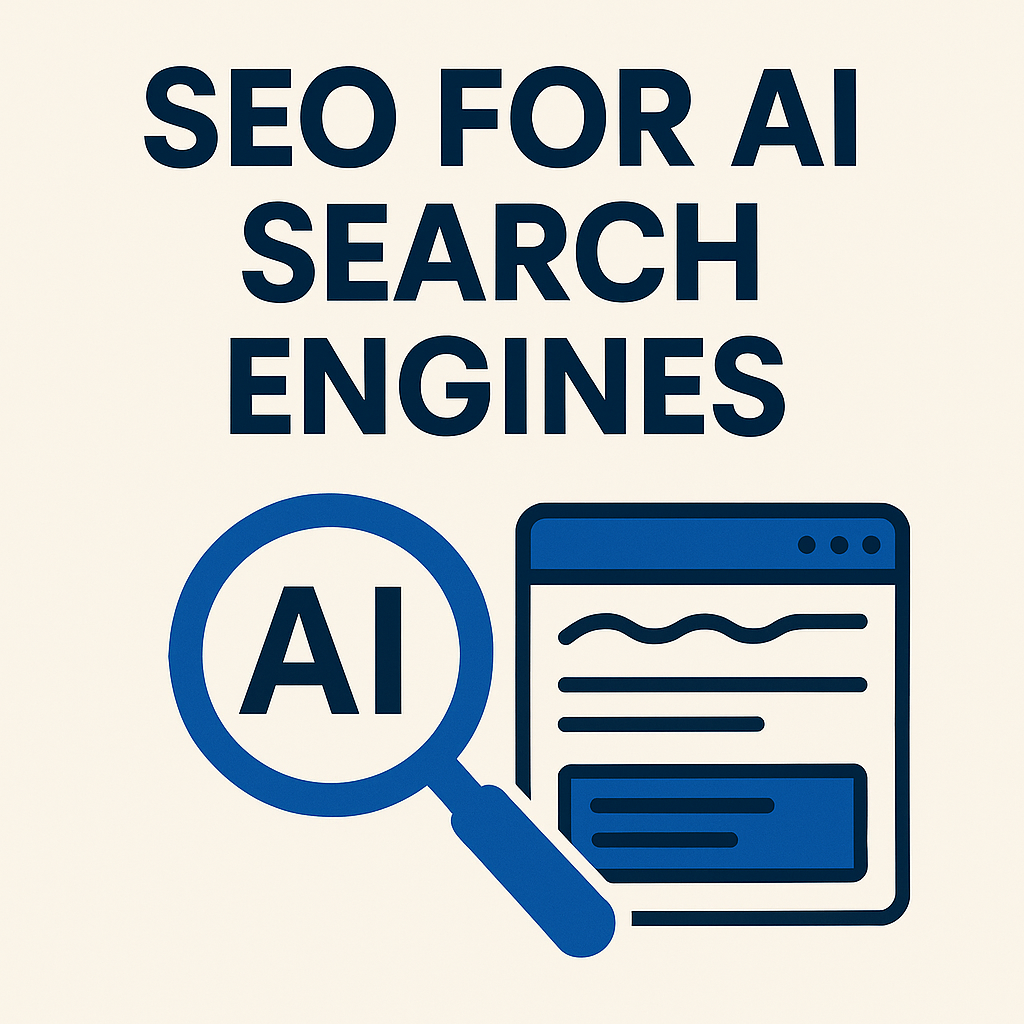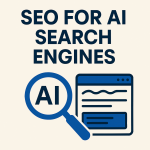Search engine optimization (SEO) has long been about adapting to Google’s algorithm changes, targeting keywords, and earning backlinks. But the landscape is rapidly shifting. With the rise of AI-powered search engines—like ChatGPT with web browsing, Microsoft’s Copilot (formerly Bing), Perplexity AI, and Google’s own Search Generative Experience (SGE)—we’re entering a new era: SEO for AI search engines.
This emerging paradigm demands a rethink of how content is created, structured, and surfaced. Here’s what you need to know to stay ahead.
What Are AI Search Engines?
AI search engines combine natural language processing (NLP), machine learning, and large language models (LLMs) to generate more conversational, synthesized answers rather than just returning a list of links. Instead of displaying ten blue links, these engines generate an answer, often pulling information from multiple sources simultaneously.
Examples include:
- ChatGPT with browsing – Synthesizes content from current sources.
- Microsoft Copilot (Bing) – Answers queries directly in a chat format.
- Perplexity AI – Provides direct answers with cited sources.
- Google SGE – Adds AI summaries to traditional search results.
Why Traditional SEO Doesn’t Fully Apply Anymore
Traditional SEO relies on Googlebot indexing pages, ranking based on content, links, and metadata, and showing links users click on. But AI search engines don’t always link to your site. They may summarize your content or cite it in passing, reducing click-throughs.
That means optimizing for AI search engines requires a strategy shift—from ranking high to being the trusted source AI pulls from.
Key Strategies for SEO in the Age of AI Search
1. Build Topical Authority
AI systems favor sources that demonstrate depth and expertise. Build comprehensive content clusters around core topics rather than isolated blog posts. Interlink them intelligently to signal authority.
2. Prioritize Clear, Factual Writing
AI systems often extract sentences or paragraphs. Avoid fluffy intros or clickbait-style writing. Lead with clear, concise, accurate statements. Use structured data where possible.
3. Use Semantic SEO and Structured Markup
AI models rely on understanding meaning, not just keywords. Use:
- Schema.org markup to help models interpret your content.
- Semantic HTML and clear headings.
- Entities (names, dates, stats) that are machine-readable.
4. Cite Sources and Link Thoughtfully
AI engines like Perplexity and Bing prefer content that itself cites authoritative sources. If you demonstrate good citation hygiene, your content is more likely to be trusted and used.
5. Optimize for Featured Snippets and SGE
Even within Google’s ecosystem, AI-generated snippets depend on well-formatted content. Use:
- Bullet points
- FAQs
- Tables
- Direct answers near the top of the page
These formats are easily extracted and reproduced in AI summaries.
6. Maintain Freshness
AI tools prioritize up-to-date content, especially for news, trends, or evolving topics. Maintain an active content calendar and update cornerstone content regularly.
7. Brand Mentions Matter More Than Links
AI models are less focused on backlink volume and more on how often and in what context your brand appears across the web. Earn mentions on forums, reviews, social media, and in content aggregators.
Challenges: Attribution and Traffic Loss
One of the biggest challenges of AI SEO is attribution. Even when your content informs an answer, you may not get credited or linked—particularly when AI systems “blend” multiple sources.
Possible solutions:
- Embed strong brand signals and CTAs in your content.
- Use proprietary data or insights that compel users to visit your site for more depth.
- Monitor AI-generated snippets using tools like Glasp or AI SEO platforms that track citation.
Tools to Monitor and Adapt
- Surfer SEO – Understand how your content ranks semantically.
- SparkToro – Analyze how your brand is mentioned online.
- AlsoAsked / AnswerThePublic – Discover long-tail, conversational queries ideal for AI optimization.
- ChatGPT or Perplexity – Use them yourself to see how your content performs and what they reference.
Final Thoughts
SEO for AI search engines isn’t just a trend—it’s a fundamental shift. Content strategies must evolve from targeting search algorithms to serving as reliable, structured, and trustworthy sources for AI agents.
Winners in this new landscape will be those who create genuinely helpful, semantically rich, and deeply authoritative content, and who understand the new rules of AI-driven visibility.
Now is the time to optimize for discovery by machines that summarize, not just index.
Need help future-proofing your content strategy? Let’s talk about how to build AI-first SEO strategies that keep you visible in the age of generative search.






Leave a Reply